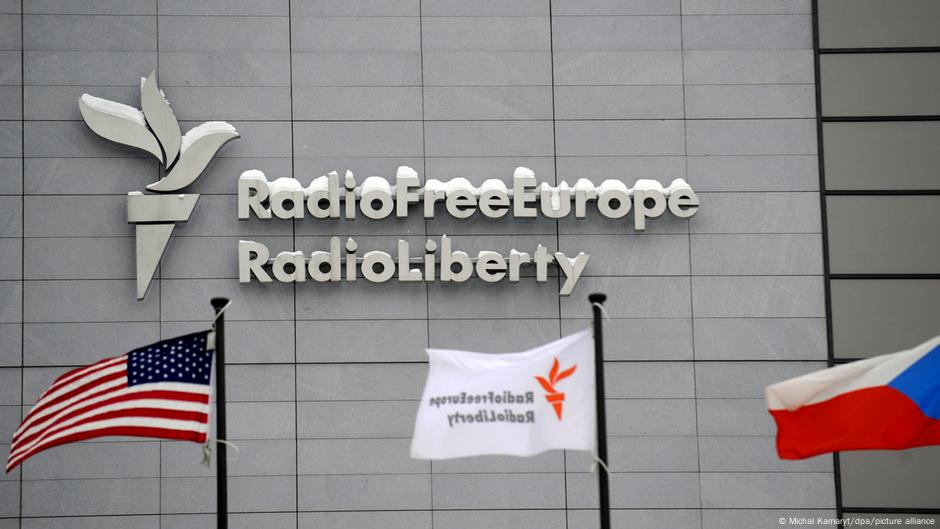Radio Free Europe/Radio Liberty (RFE/RL) has initiated a lawsuit against the administration of President Donald Trump in an effort to overturn a decision that revoked its funding from the U.S. government.
Stephen Capus, president and CEO of the media organization, expressed confidence in their case, asserting that withholding congressionally allocated funds is an illegal act. “It’s crucial that the funds are released. We must honor the essential work that is being carried out, which is critical for both the United States and our audience,” Capus stated while in Washington, D.C. meeting with congressional aides to advocate for his position.
What is Radio Free Europe/Radio Liberty?
Originally established in 1950 during the Cold War, Radio Free Europe aimed to reach individuals living under Communist regimes behind the Iron Curtain of the Soviet Union. In 1953, Radio Liberty began broadcasting in Russian along with over a dozen other local languages. Currently, the organization transmits in 27 languages, serving as a vital source of information for nations lacking free press in Eastern Europe, Central Asia, the Caucasus, and the Middle East.
Why has RFE/RL faced funding cuts?
On March 14, Trump signed an order aimed at dismantling the U.S. Agency for Global Media, which manages RFE/RL and the international broadcaster Voice of America. This action was part of a larger directive that also targeted seven other federal agencies and involved prior budget reductions to agencies such as USAID and the Department of Education. Tech billionaire Elon Musk, instructed by Trump to reduce government expenditure, suggested the closure of U.S.-funded broadcasters, labeling them as “left-wing radicals” squandering taxpayer funds.
Significance of RFE/RL for Europe
Capus criticized the funding cuts as “futile,” questioning the rationale behind such severe actions during a crucial historical moment. He noted the unstable media landscape across various regions where RFE/RL operates, stating that their existence is crucial where free press is either absent or endangered. The cuts come at a time when Russia has been inundating Europe with misinformation, particularly during elections in countries like Germany and Romania.
Support for RFE/RL amid funding challenges
Despite the cancellation of its grant agreement, Capus assured that RFE/RL will continue its operations, acknowledging that maintaining functionality in the face of reduced funding would be challenging. He emphasized the organization’s commitment to its audience and the importance of not pulling back from critical regions. Many European leaders, including those from Sweden and Belgium, have publicly supported RFE/RL, with DW Director General Peter Limbourg describing the funding cuts as detrimental to free speech and press freedom.
European Union’s Potential Role in Funding
The EU is currently exploring ways to sustain Radio Free Europe, with the Czech Republic advocating for continued support. EU foreign policy chief Kaja Kallas reflected on the network’s influential role during her childhood in Estonia, viewing it as “a beacon of democracy.” However, when questioned about long-term financial commitments from the EU to replace U.S. funding, she indicated that such answers are not guaranteed. Capus stated that the organization hasn’t yet identified alternative funding but is grateful for the current support and hopeful for future developments.
Anja Kueppers-McKinnon contributed to this article.
Edited by: Wesley Dockery



